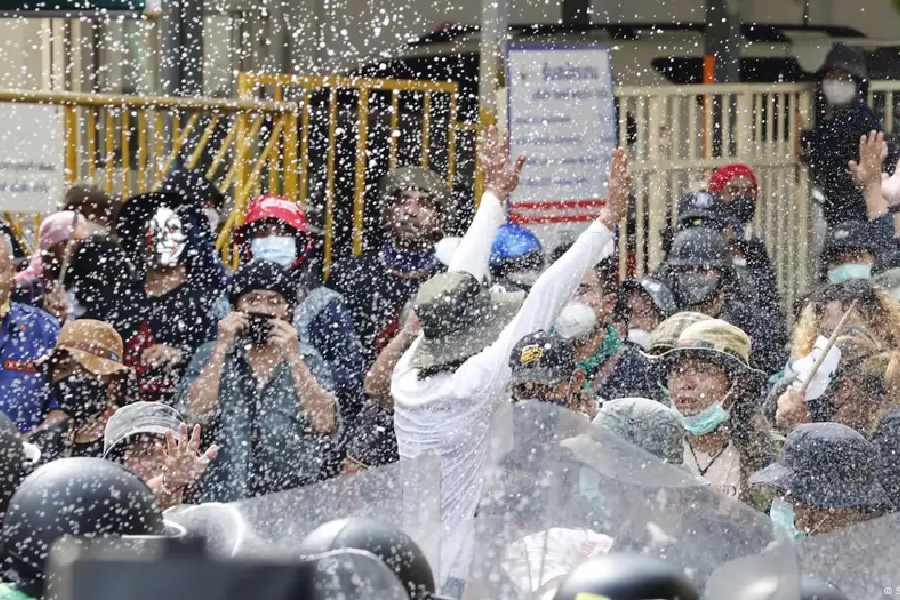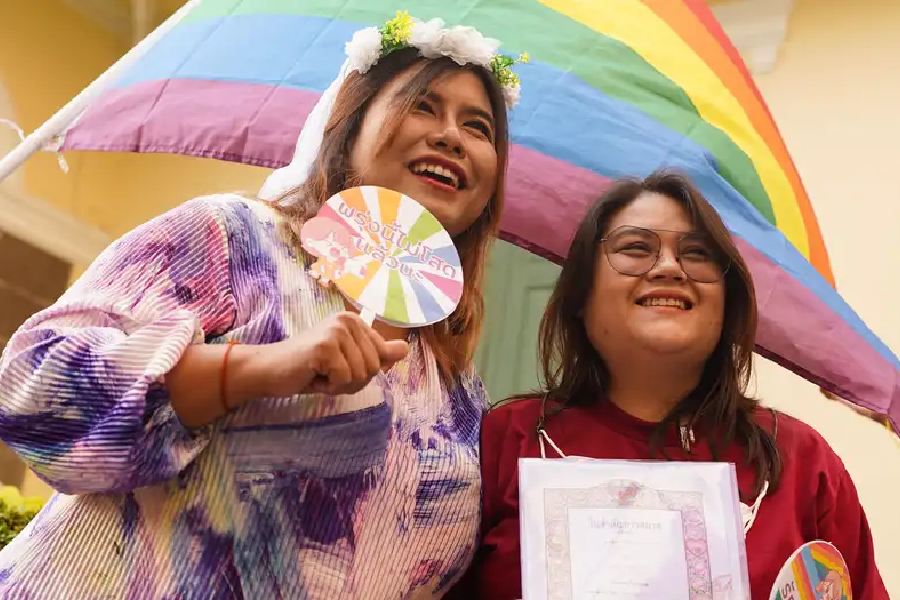The recent fatal shooting of a Cambodian dissident in Thailand, combined with possible deportations of Uyghur refugees has once again shone a spotlight on Bangkok's failure to protect dissidents and political refugees.
Former Cambodian lawmaker Lim Kimya was gunned down on January 7 in Thailand's capital. He had only arrived in Bangkok earlier that day on a bus from Cambodia.
Separately, the Thai government on Thursday, February 27, sent at least 40 Uyghurs who had been detained in Bangkok for over a decade back to China.
"Both Lim Kimya's killing and the current predicament of the Uyghurs show that (...) Thailand is not a safe place for refugees," Patrick Phongsathorn, a senior advocacy specialist for Fortify Rights, told DW.
Deporting Uyghurs against international law
The assassination of Lim Kimya and the alleged deportations are only the latest in the long line of violent or legally questionable incidents concerning migrants in Thailand.
In November 2024, Thai authorities forcibly returned six opposition activists to Cambodia to face treason charges, despite them having a UN-recognized refugee status.
In mid-2024, Bangkok also arrested Y Quynh Bdap, a Vietnamese ethnic minority rights activist, following an extradition request from Hanoi.
A year earlier, Bounsuan Kitiyano, an exiled Lao political activist who also had UN refugee status, was killed in Thailand's northeastern Ubon Ratchathani province.
Thai authorities have also deported Uyghurs, a mostly Muslim ethnic group in China's northwestern province of Xinjiang that has faced persecution by Beijing. In 2015, Thailand repatriated 109 Uyghur detainees to China — a decision that was widely condemned.
And the latest extradition of 40 Uyghurs also prompted condemnation, with critics slamming it as illegal.
But the Chinese government said that the repatriation was carried out "in accordance with Chinese and Thai laws, international law and international practice."
"The Chinese citizens repatriated this time were incited by criminal organizations and illegally left the country before remaining in Thailand," a spokesperson for the Chinese Ministry of Public Security told a press briefing.
No safety in Southeast Asia
Other countries in the region seem to follow the same trend. In an email to DW, Amnesty International said it has also "observed the alarming escalation of transnational repression" in Vietnam, Cambodia, Laos, and Myanmar.
"Activists, human rights defenders, and political dissidents who fled their home countries in hopes of a safe haven ended up facing abductions, enforced disappearance, killings, and forcible returns to places where they could face human rights violations," said Chanatip Tatiyakaroonwong, Amnesty International's Thailand and Laos researcher.
For example, Thai human rights activist Wanchalearm Satsaksit disappeared in Cambodia in 2020. A year earlier, three Thai activists, Chucheep Chiwasut, Siam Theerawut, and Kritsana Tupthai, went missing after reportedly being arrested in Vietnam. Their whereabouts remain unknown.
In late 2018, the bodies of two anti-royalist Thai activists, Chatcharn Buppawan and Kraidej Luelert, were found stuffed with concrete on the banks of the Mekong River.
Amnesty's Chanathip said "the identities of perpetrators remain unknown" in most cases, "despite the strong suspicion of state involvement given that the victims were all critics and dissidents."











